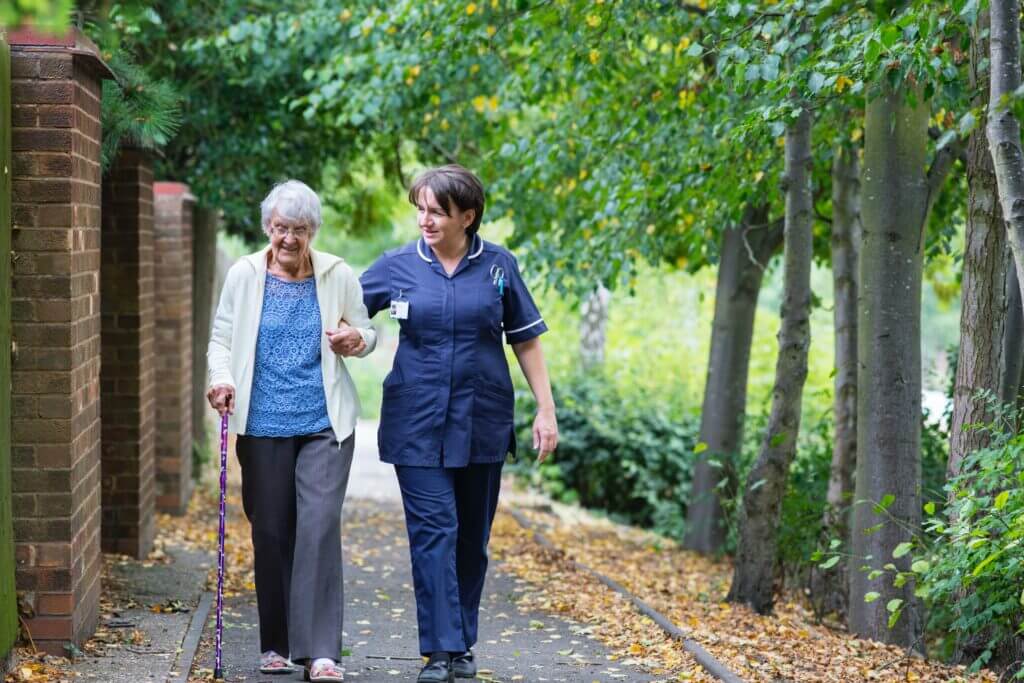Knowing when it’s time to move into an assisted living community plays a crucial role in how people keep senior family members safe. The last thing anyone wants to experience is finding out too late that their loved ones needed more assistance than they provided or could provide. Moving into assisted living depends not only on how well a senior is handling aging but also on how well their caregivers handle the responsibilities.
Deteriorating Health
Deteriorating health is a natural part of growing older. Some seniors make it through their older years with few to no chronic illnesses, but this is rare. At least 60% of seniors have two or more chronic illnesses, and at least 85% have one or more. This might stem from reduced mobility, which can also affect the meals prepared. Someone suffering from joint pain or other symptoms might feel less inclined to spend time planning and creating nutritious meals. Some people with a history of cancer might also not pay proper attention to meals because of loss of appetite.
Increased Dependence
Independence is an underrated privilege of youth. As people grow older, dependence on others becomes necessary. In the beginning, this might relate to more strenuous activities. In time, seniors might need assistance with basic activities, such as bathing or preparing meals. At this stage, it might be time to start looking into assisted living options. When medical conditions play a role in increased dependence, it might sign a need for around-the-clock access to health care.
Unsafe Driving
The older seniors become, the riskier it is for them to keep driving. There have been several stories in the news of seniors falling asleep at the wheel or suffering impairment from prescribed medications. Their reflexes are also not as quick. Compared with the risk of failing eyesight and hearing, a lot can go wrong. If your parents begin to insist you drive them everywhere, take heed. It’s also important to complete a basic inspection of the vehicle when you visit. Look for bumps and scratches that might indicate an accident.
Decreased Mobility
Losing some mobility is not an immediate cause for alarm. After all, millions of people with disabilities worldwide have learned to adjust and live in homes suited to their needs. However, when it is tied to aging or some specific illnesses, loved ones should pay close attention to how it progresses. The first fall is usually an indication that it’s time to start looking into other options. Other signs include an inability to stand for long periods or walk far distances without holding on to objects. Sometimes, seniors try to prevent children from noticing this by getting comfortable before they arrive and sweetly asking for assistance.
Deteriorating Hygiene
Caring for oneself and the home takes a lot of time, effort, and organizational skills. Some adult children share that they knew it was time to consider assisted living when their childhood homes transformed from spotless rooms to chaos and even hoarding. Failing to attend to personal hygiene is also an ominous sign of physical limitations and potential mental illness. Seniors could struggle with depression and loneliness or be in the early stages of dementia.
Safety Concerns
Seniors living in safe communities might still need to worry about medical emergencies. If they experience a fall or a medical emergency, will they secure help in time to save their lives? How long will it take before other family members recognize something is wrong or returns to the home to check on them?
Untenable Care
The more severe aging symptoms are, the more difficult it becomes for family members to care for seniors. Even mild cases can cause some people to become overwhelmed because of other stressors. In some cases, adult children might even develop conditions that make it difficult or impossible to care for others. When care becomes untenable, it is certainly time to consider assisted living.
Family members often feel guilty about giving up their caregiver role, but there is no harm in admitting they need help too. They might not have the time or medical skills to continue to be a full-time caregiver when aging signs become more pronounced. Seniors might also feel like their family members are putting them in homes because they don’t want them around. This is one of the top reasons adult children feel hesitant about assisted living.
The truth is that caregiving is a demanding role that is often best left to a team of professionals. At Caring Places Management, we hire experienced professionals who prioritize compassion when interacting with residents. Schedule a tour of our communities today to learn more about our care and programs.

